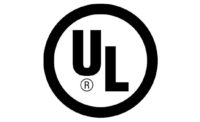 A newly formed alliance seeks to serve as a global source for information, guidance and knowledge on indoor environmental quality.
A newly formed alliance seeks to serve as a global source for information, guidance and knowledge on indoor environmental quality.
A memorandum of understanding creating the Indoor Environmental Quality Global Alliance was signed Sunday, June 29, at ASHRAE’s 2014 Annual Conference in Seattle, Wash. In addition to the American Industrial Hygiene Association (AIHA), other groups joining the Alliance are the Air Infiltration and Ventilation Centre (AIVC), the Air & Waste Management Association (A&WMA), the Indoor Air Quality Association (IAQA) and the Federation of European Heating and Air-Conditioning Associations (REHVA).
More information can be found at www.ieq-ga.net.
The Alliance was formed by an ad hoc committee appointed by ASHRAE 2013-14 President Bill Bahnfleth to explore ways in which industry groups could work together to address all aspects of indoor environmental quality and health.
The need for progress "has been obscured"
“In the built environment, indoor environmental quality must be our first concern,” Presidential Member Bahnfleth said. “Before we address impacts of buildings and transportation systems on energy consumption and the environment – which, make no mistake, are also critically important – we must ensure that we are providing indoor environments that are safe, healthy, productive and comfortable for occupants. Today, and for some time, we have strongly emphasized energy conservation and protection of the environment to such an extent that the need for progress in indoor environmental quality has been obscured. A broad, coordinated effort is needed to fill gaps in research, transfer the results of science to practice, advocate for higher standards and better educate both the built environment professions and the public. I believe that formation of this Alliance is a key to meeting those objectives. ASHRAE is eager to contribute its expertise to this group and to once again be a leader in the field of indoor environmental quality, beginning with a focus on indoor air quality.”
“AIHA is very excited to join ASHRAE and other international stakeholders in the IEQ Global Alliance,” Christine A.D. Lorenzo, CIH, president, AIHA, said. “The Alliance brings together key groups, each of which has members with unique sets of skills and knowledge. We look forward to working within the Alliance to identify new ways to collaborate, and expand international alignment in this important area of occupational hygiene and engineering practice.”
Increased pressure
“Contemporary European architecture is undergoing fundamental changes caused by increased pressure to reduce energy consumption of buildings,” Karel Kabele, REHVA president, said. “Modern approaches, methods and technologies are capable of saving energy, but also affect other functions of the building i.e. indoor environmental quality. In energy efficient buildings we can resolve problems with thermal comfort, air quality and other components of IEQ. I firmly believe that joint efforts of IEQ-GA will contribute not only to saving energy but also to improve IEQ in buildings, we build for next generations."
“The Air & Waste Management Association (A&WMA) is pleased to be a part of this partnership,” Jim Powell, executive director, A&WMA, said. “We see the IEQ-GA as a forum to better focus efforts on improving the indoor environment. Efforts to support this partnership will be coordinated with our Health Effects & Exposure Technical Coordinating Committee. This committee is responsible for all of the indoor environment programming within A&WMA.”
“The Indoor Air Quality Association, IAQA, is proud to join key organizations in signing the IEQ-GA agreement,” Kent Rawhouser, president of IAQA, said. “This alliance of organizations will lead to collaboration between the best minds in our industry to ensure an improvement in indoor environmental conditions for people around the world. IAQA's members are experts in the implementation, investigation and remediation of indoor environmental issues.”
Air quality, thermal & visual comfort, acoustics
“While substantial progress in the energy efficiency of our building stock is crucial, we must guarantee at the same time a good indoor climate in these buildings, including air quality, thermal comfort, visual comfort and acoustics. Given the complexity of the issue and the various challenges, we are very pleased to see the creation of this alliance,” AIVC Operating Agent Peter Wouters said.
The Alliance will provide guidance on the definition of acceptable indoor environmental quality, with an emphasis on thermal conditions and indoor air pollution, to ensure that the knowledge gathered from indoor environmental quality (IEQ) research is promulgated to and implemented by IEQ practitioners and regulatory bodies worldwide.
The mission of the alliance IEQ-GA is to provide an acceptable indoor environmental quality (thermal environment-indoor air quality-lighting-acoustic) to occupants in buildings and places of work around the world and to make sure the knowledge from research on IEQ gets implemented in practice. The establishment of the Alliance is supported by the World Health Organization and the U.S. Environmental Protection Agency, who will cooperate with the Alliance in the future.
Bahnfleth said the Alliance will also seek cooperation from other organizations whose work directly impacts the indoor environment on people’s well-being and health.
About ASHRAE®
ASHRAE, founded in 1894, is a global society advancing human well-being through sustainable technology for the built environment. The Society and its more than 50,000 members worldwide focus on building systems, energy efficiency, indoor air quality, refrigeration and sustainability. Through research, standards writing, publishing, certification and continuing education, ASHRAE shapes tomorrow’s built environment today. More information can be found at www.ashrae.org/news.
About AIHA®
Founded in 1939, the American Industrial Hygiene Association (AIHA) is the premier association of occupational and environmental health and safety professionals. AIHA’s 10,000 members play a crucial role on the front line of worker health and safety every day. Members represent a cross-section of industry, private business, labor, government and academia.?








